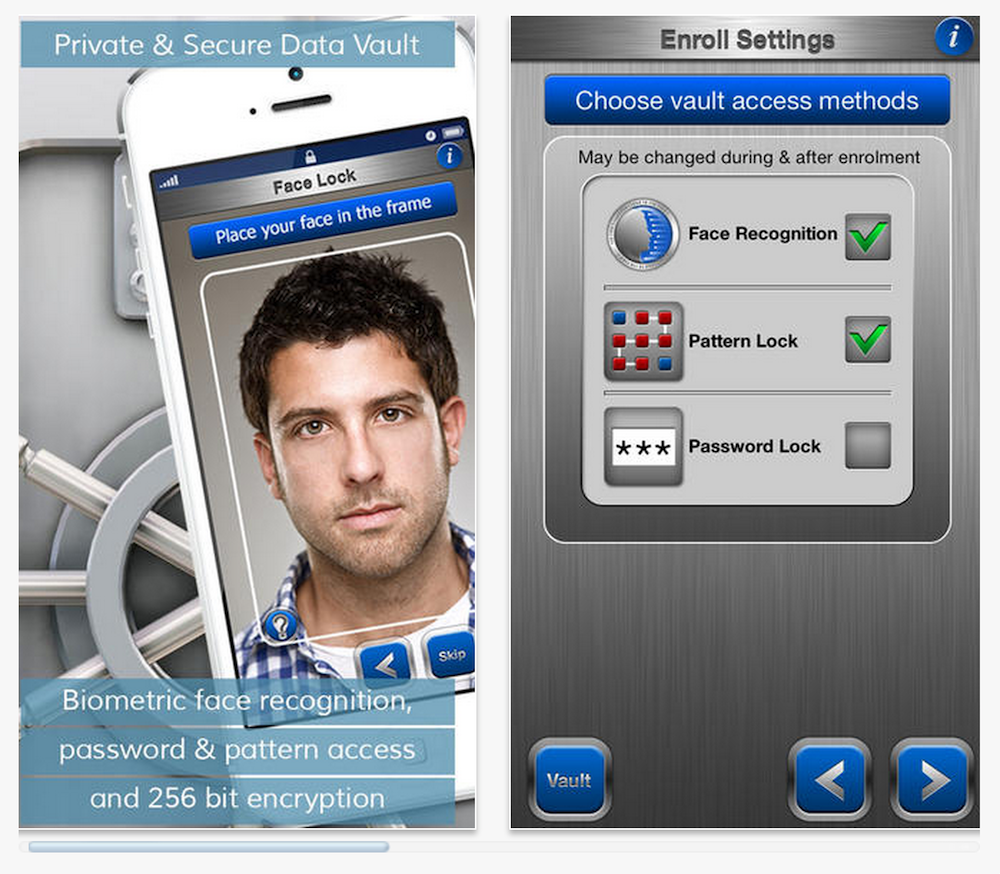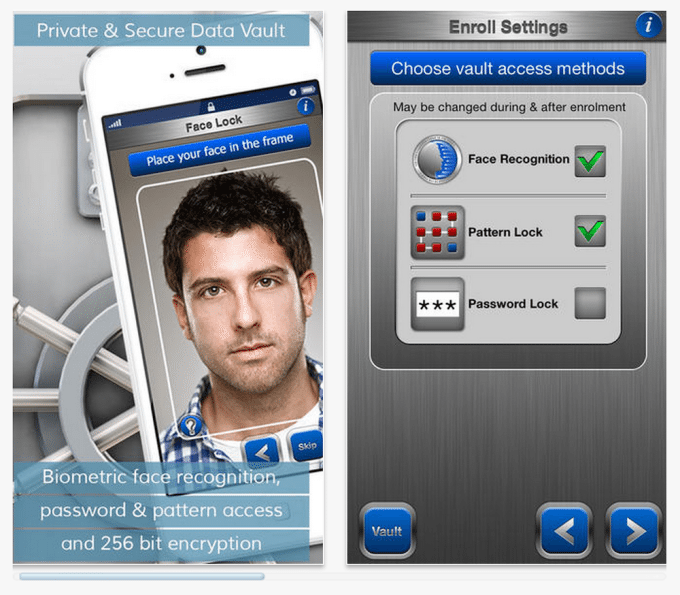Last Updated on 04/02/2014 by Felix Esser
Android users have long enjoyed a feature called ‘Face Unlock’ which requires them to take a picture of their face (i.e. a “selfie”) in order to unlock their phones. While iPhone users are still relying on the classic slide-to-unlock and PIN technologies to unlock their phones, they can now secure sensitive data such as pictures or passwords with a new iOS app called FaceCrypt.
Similar to the technology used in Android devices, FaceCrypt requires the iPhone user to authenticate themselves by snapping a “selfie,” and will only unlock the 256-bit encrypted data when the image contains the correct biometric information. The data is stored in so-called ‘vaults,’ which can contain anything from photos, videos, notes and documents to passwords or credit card information.
Though the extra level of security that FaceCrypt adds will most certainly be appreciated by iPhone users that store sensitive data on their phones, there is a major problem with this app. Just like the Face Unlock feature in Android devices, FaceCrypt’s “selfie” lock is virtually unusable, as according to this flowchart it is really never acceptable to take a selfie. At all. And that includes encrypting or decrypting the data stored on your phone.
Luckily, FaceCrypt also supports unlocking via pattern or password, so you can still use the app for securing your data. It is available on iTunes for US-$ 6.99. Just make sure never to use the “selfie” lock. (We’re joking of course. But still, don’t take selfies.)
Via Digital Trends



